Session 20: Early Career Scientists: Pitch Session
Wednesday, 4th December 4.30PM AEST | Plenary session
Early Career Scientists from Australia and the Asia Pacific Region pitch their visionary ideas for the research infrastructures the world will need by 2050. These researchers, deeply connected to current RIs in their countries, will present ambitious, future-focused concepts across a diverse range of disciplines. It’s a unique opportunity to hear from the next generation of leaders, who will one day guide us toward groundbreaking RIs that address emerging challenges and unlock new frontiers in research.

Moderator
Dr Graham Wright combines an interdisciplinary PhD from The University of Edinburgh with an MBA from the Warwick Business School and 16 years’ experience leading advanced microscopy core facilities. As the Director of the Research Support Centre within Singapore’s Agency for Science, Technology & Research (A*STAR), Graham is a passionate proponent of core facilities to enable and enhance scientific research, by providing world-class, operationally optimized, expert-run facilities, sustainably. With partners from Singapore’s research ecosystem, Graham founded SingaScope – a Singapore-wide microscopy infrastructure network, part of Global Bioimaging (GBI). Together with Kerry Thompson (Galway), Graham co-chaired the GBI Working Group on Imaging Scientist Career Paths.
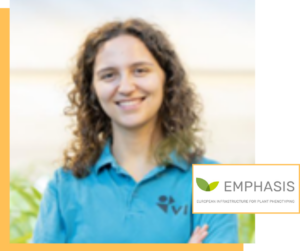
Panellist
Inês Pinho is a Coordination Manager at EMPHASIS, the European Research Infrastructure for Plant Phenotyping. With a background in Biology, Inês aims to facilitate research and help researchers achieve impressive results. She is actively involved in the European Research Infrastructures scene and envisions expanding her involvement to a more international setting. Inês believes that research infrastructures are a powerful way to elevate science to new heights.
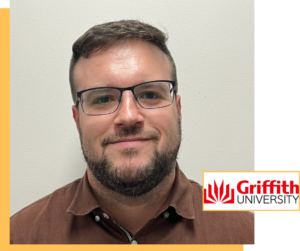
Panellist
Dr Ben Norton is the Senior Technical Manager for Griffith Sciences at Griffith University in Brisbane, Australia. Ben oversees the technical operations of Griffith Sciences’ broad teaching and research capabilities, encompassing the fields of engineering, aviation, information technology, and environmental, biological, chemical, material, and physical sciences, as well as the core facilities that support research in these fields.
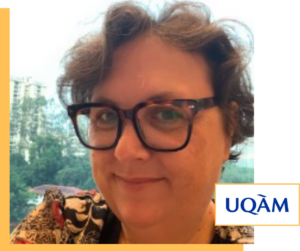
Panellist
Laurence Lejeune held the position of Scientific Platform Manager for ten years, first at the Lady Davis Institute and then at the CHUM Research Centre. Subsequently she worked as an independent consultant, providing support in microscopy and cytometry (training, quality control, validation) to clients in academia, hospitals, and the private sector. Laurence has also been deeply involved in professional associations, starting as a founding member and later as President of the Canadian Cytometry and Microscopy Association. In 2016, she co-founded the Canadian Network of Scientific Platforms (CNSP), where she served as Vice President. Her current role as a PhD candidate in Science, Technology, and Science (STS) at The Université du Québec à Montréal (UQAM) reflects her commitment to understanding the role and impact of scientific platforms within the academic research ecosystem.
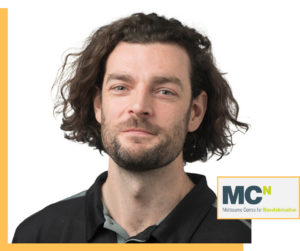
Panellist
Dr Ash Dyer is a Senior Process Engineer Deputy Facility Manager at the Melbourne Centre for Nanofabrication (MCN). MCN is an open access micro/nano fabrication facility that makes up part of the Victorian node of the Australian National Fabrication Facility (ANFF), based at Monash University.
Ash makes up part of the Thin Film Deposition and Packaging team overseeing the maintenance, training on and operation of micro/nanofabrication tools for industry and academic stakeholders. This gives Ash the unique opportunity to be involved in a wide range of industry and academic research projects and to support the growth of micro/nanofabrication capabilities in Australia.
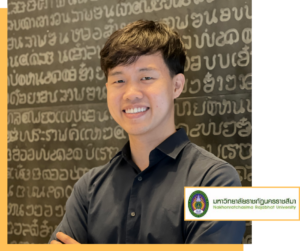
Panellist
Dr Pakpoom Buabthong is the Deputy Director of the Office of Lifelong Learning at Nakhon Ratchasima Rajabhat University, Thailand. With expertise in materials science and artificial intelligence, Dr Buabthong drives interdisciplinary projects in renewable energy, disaster risk management, and AI applications, advancing sustainable development and scientific leadership in Thailand. He’s also a passionate advocate for nurturing young scientists, particularly through policy initiatives with the Thai Young Scientist Academy, focusing on empowering early-career researchers and promoting scientific innovation.
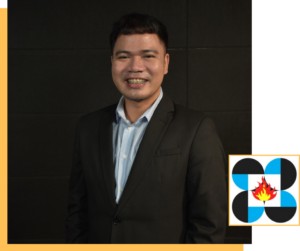
Panellist
Joel Bautista is currently the Chief of the Knowledge Innovation Division (KID) of the Philippine Department of Science and Technology (DOST) – Philippine Science High School System. His research interests include Artificial Intelligence in Education, Educational Technologies, and Microcontrollers/Robotics. Prior to his stint as the Chief IT Officer, he taught Computer Science and Technology subjects. He has been the project leader/mentor of the three Young Innovators Program projects and a recipient of various research grants focused on educational technologies and emerging technologies, such as AI and blockchain technology. Joel conducts seminars and workshops on robotics, research writing, design thinking, and edtech. He is also being tapped for curriculum and instructional design.
We acknowledge the Traditional Owners of the lands and waters throughout Australia, and pay respect to the Elders past, present and emerging. We recognise the importance of connection to culture, land, kinship and community to the health and wellbeing of Aboriginal & Torres Strait Islander families. We acknowledge the cultural practices and traditions still carried out today and being passed down to future generations.


